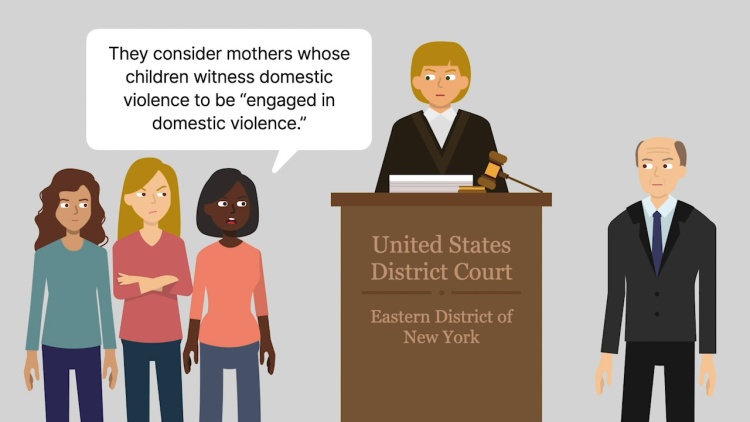Nicholson v. Scoppetta
New York Court of Appeals
820 N.E.2d 840 (2004)
- Written by Brittany Frankel, JD
Facts
Sharwline Nicholson (plaintiff) brought an action against the New York Administration for Children’s Services (ACS) (defendant) on behalf of herself and her two children. Nicholson brought the action pursuant to § 1983, alleging that ACS had improperly removed her children from the home without probable cause or due process of law. Nicholson was a victim of domestic violence, and ACS found that, as a victim, she engaged in domestic violence. ACS’s sole allegation of neglect was that Nicholson had allowed the children to witness the domestic abuse that was carried out against her. Nicholson alleged that the ACS had unlawfully violated her right to care for and have custody of her children. Nicholson’s suit was eventually consolidated into a class action. The district court issued an injunction preventing the ACS from removing children from their mothers solely due to the fact that the children had witnessed domestic violence committed against their mothers. ACS appealed the decision, and the United States Court of Appeals for the Second Circuit certified the question of whether a parent could be found guilty of neglect and separated from his or her children solely because the children had witnessed domestic violence committed against the parent. The New York Court of Appeals accepted the certification.
Rule of Law
Issue
Holding and Reasoning (Kaye, C.J.)
What to do next…
Here's why 907,000 law students have relied on our case briefs:
- Written by law professors and practitioners, not other law students. 47,100 briefs, keyed to 996 casebooks. Top-notch customer support.
- The right amount of information, includes the facts, issues, rule of law, holding and reasoning, and any concurrences and dissents.
- Access in your classes, works on your mobile and tablet. Massive library of related video lessons and high quality multiple-choice questions.
- Easy to use, uniform format for every case brief. Written in plain English, not in legalese. Our briefs summarize and simplify; they don’t just repeat the court’s language.





